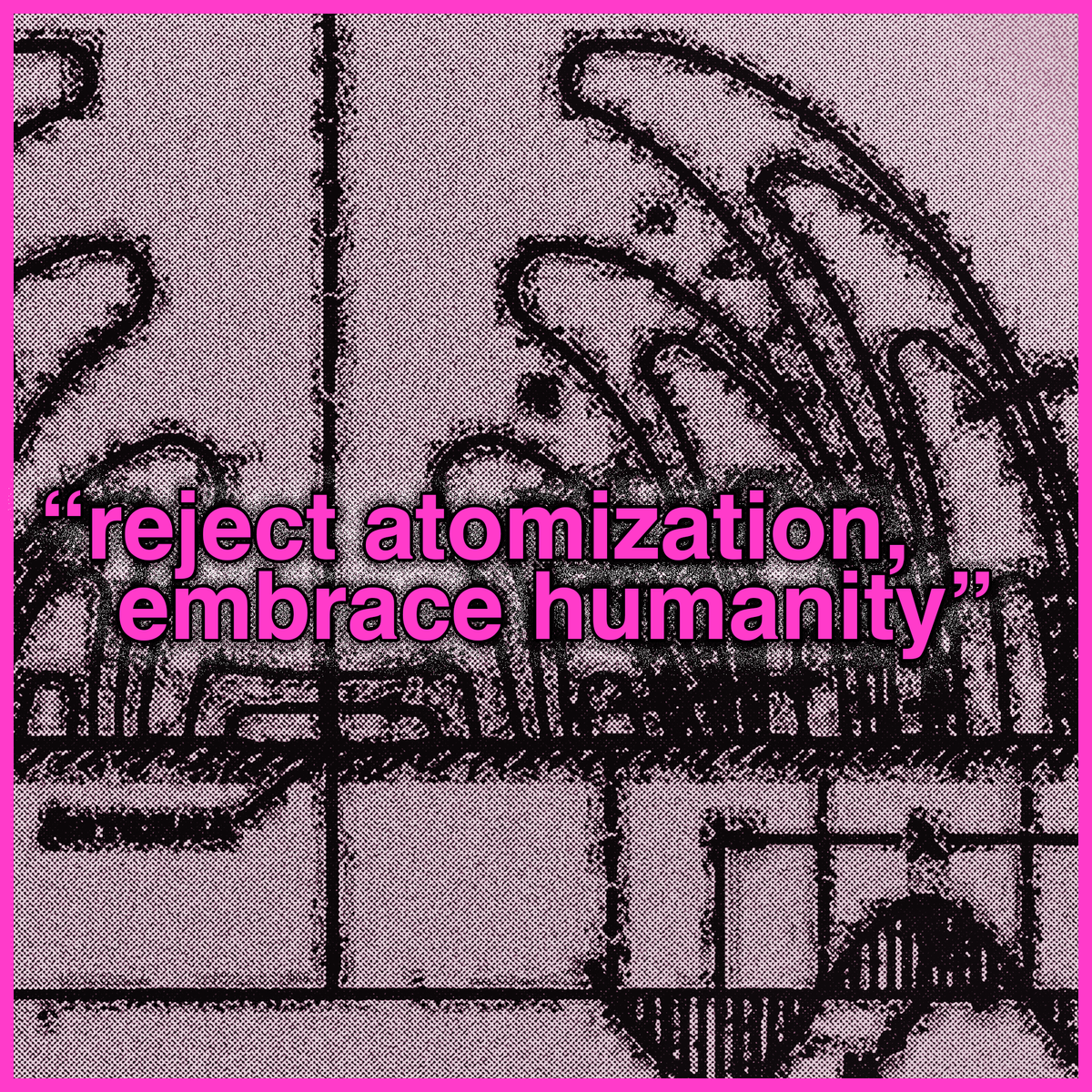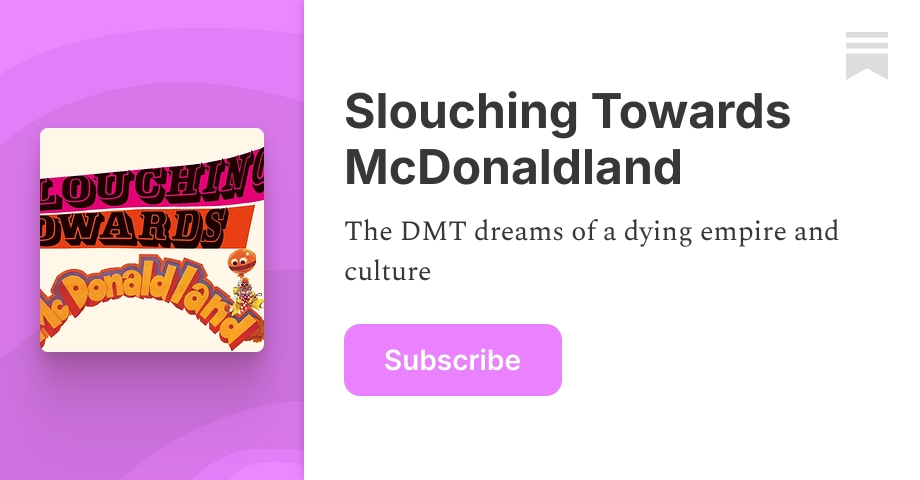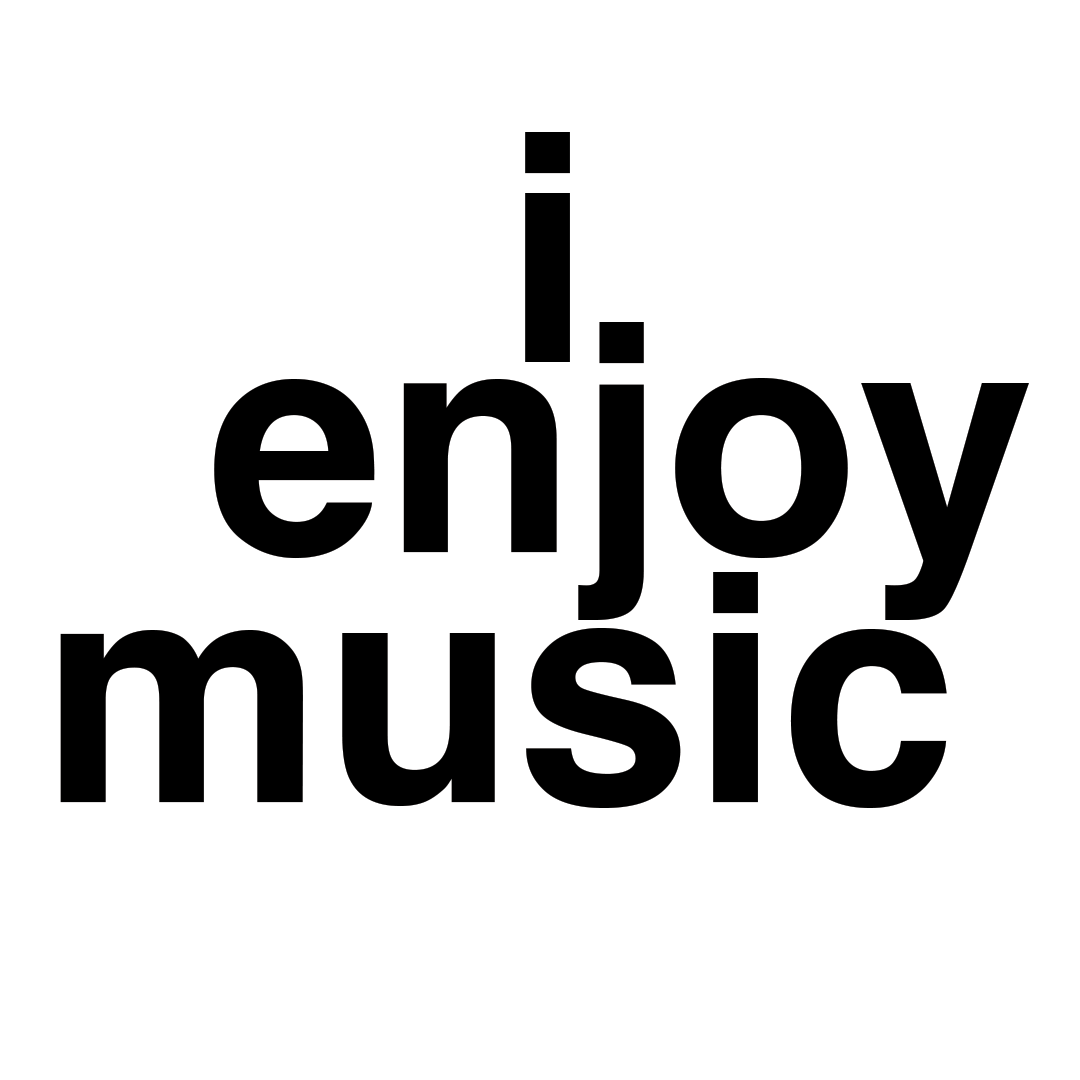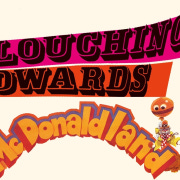radio radio

sup guys — how bout a guest post for your enjoyment? Here's previous I Enjoy Music guester Andrew Crowley of Slouching Towards McDonaldland, on the pre-algorithm forces that shaped his music taste...
Living in the age of the algorithm sucks. It removes the human element of a very human thing: art.
Gone are the days of the tastemaker: the record store clerk, the radio DJ, the fellow shut-ins on the Steve Hoffman boards. Or perhaps a parent or older sibling.
Sure, sometimes the machine can suggest good stuff. When I was a senior in high school, I really enjoyed Pandora Radio; it introduced me to a lot of songs and artists, but it lacked the human touch.
An algorithm can only take you so far. Based on the data you feed it, it can point you in the right direction but it doesn’t have personal anecdotes about why it loves an artist. Things like a song lasting the time it to travel to their high school boyfriend’s house. It won’t hear a song in public and text you about it, because it sounds like something you’d like to hear.
In my younger years, radio was still a vital force. The consolidation of media ownership was nowhere near the current levels it reached since the passage of the Telecommunications Act of 1996. That piece of legislation led to the homogenization of playlists.
More than my mother, radio is what shaped my taste in music. My earliest memory of really caring about music was as a kindergartner. I was a Region Rat. That’s the term for Hoosiers living in Northwest Indiana. The region refers to the Chicagoland area. Chicago is where the oldies station the bus driver listened to every morning was based. For the life of me, I can’t remember ever hearing The Beatles on the station. A little surprising as that year was the 30th anniversary of them arriving in America, appearing on Ed Sullivan, and many other iconic mop-top moments. Beatles Anthology was one year away.
What I do remember hearing is Motown: The Four Tops, The Supremes, and The Temptations. Those hardwired musical preferences in my DNA: songs 2-3 minutes long, catchy melodies, a crack backing band.
Growing up, I also heard a lot of country music. Like a lot of people, my mom had enjoyed going line dancing and became a fan of then-current country music. I heard the big names of that era all the time, whether on radio, tape or CD: George Strait, Garth Brooks, Reba McEntire, Mary Chapin Carpenter, Alan Jackson, Brooks & Dunn and so many more.
I still have a soft spot for that era of country music, and it’s a crucial part of my musical DNA.
I was generally out of step with the music my peers liked. A music class in elementary school featured songbooks with contemporary hits by KC & JoJo, Monica, other late 90s R&B artists, and the early efforts of that wave of boy bands. We also sang “Sir Duke” a lot. I didn’t really know anything about jazz then, so I assumed Stevie Wonder was singing about musical pioneers from a much earlier time.
Based on the title alone, I imagined Sir Duke as a knight, wearing a beaked helmet with a plume and a suit, playing at a piano.
In my latter elementary school years, I tried to fit in with my classmates more by trying to get into contemporary music. I watched a little MTV and a lot of VH1. I started listening to Smash Mouth, The Red Hot Chili Peppers and U2.
But what really sparked a deeper interest in music was The Beatles. I got 1 and that was that. Every song was incredible to me and I had never heard anything quite like it before.
My dad wasn’t part of my life, before and after my parents split, so I had to function as my own cool uncle when it came to exploring the classical rock canon.
When I listened to radio, I stuck to two stations: Gold 104.5 and 94.7, known as Q95. The former station is where I first heard about the passing of George Harrison. That happened my first year of Beatles fandom. I took it hard and George became my favorite Beatle partly because of that. I also related to his sense of humor, love of film, the fact that music didn’t come easy to him the way it did for some of his bandmates, and that we both were born in February. It also helps that a lot of George songs fit my range. When I sing Beatles at karaoke, it’s usually a song where George sings lead, like “Do You Want To Know A Secret.”
The latter station proved really influential in high school because they broadcast Nights with Alice Cooper. That’s a radio show I always tried to tune into because he usually played some deep cuts and things I’d never heard. Like David Bowie’s cover of “See Emily Play,” from Pinups, an album of covers of the artists who influenced him and made him want to make music.
I loved the artist channels on satellite radio for similar reasons: the opportunity to hear artists I liked and respected playing me things I’d never heard before and introducing me to new favorites.
College is where my music tastes changed the most thanks to a combination of music classes and the student radio station.
Z301 - Rock Music In The '70s and '80s is easily the most influential class I took. It covered a staggering amount of genres and the title belied the full scope of the class. It covered the '90s as well and included hip hop. It’s now known as History of Rock III. If I could pinpoint a moment in time where my taste really started to expand in scope, it was then.
Before that class, I mostly listened to classic rock: The Beatles, The Stones, The Kinks, The Who, etc. I added punk music my senior year of high school. After every performance of the last play I ever did, Nunsense, I drove home listening to “(White Man) In Hammersmith Palais.”
During that semester, I used my disposable income to buy my first jazz CDs. I started with the basics: Miles Davis, John Coltrane. I’d played in several jazz bands at that point but it wasn’t a music I spent a lot of time with.
I gave country music another chance, mostly country-rock stuff. And I got more into indie music. At the encouragement of a new friend, I listened to Big Star. I knew only the Cheap Trick cover of “In The Street.” That semester, Rhino released remasters of The Replacements’ Twin Tone discography. At the recommendation of other posters on the message board for comics writer Brian Michael Bendis, I got Let It Be. I loved it because it was familiar, yet new.
I have a vivid memory of driving back home from my last final and listening to it. My freshman year of college wasn’t what I had imagined it would be. It was a lot lonelier than I had anticipated. Some of that was my own doing. I went home for the weekend more than I should have. And my second semester, I lived alone, which was my request when I had I initially applied to live in the dorms.
While there are aspects of solitude I like, I find that I am better off living with others.
I think there was also an adjustment period because I was not used to being away from home so long. It just took time and getting out of my shell some. I have never been great at initiating a conversation with someone I don’t know. Which is funny given my chosen profession is journalism. For whatever reason that mental block doesn’t exist, when I am doing the job it’s easy enough to approach people because of my existing pretext. Yet that somehow doesn’t translate to my personal life.
In basketball terms, I’m not a guy who likes to create his own shot. If someone initiates, I am good to go. Being aware of these limitations, I’ll make choices that will put me in a position to excel, such as getting involved in student activities.
My freshman year, I was involved with the student radio station. I didn’t get a show that first semester, but I was on the music committee. Which meant that I got to listen to and review CDs, both to take note of any language that would preclude play due to FCC regulations and to provide DJs important information such as the quality of the songs and album and what the band sounded like. As DJs, we played current indie music as well as deeper cuts.
For whatever reason I didn’t return to the station the next two semesters but got reinvolved during my fourth semester of college.
That’s when I got my first radio show. My first ever show was the day I turned 20, the day two friends got married. I had a cohost named Rob. He and I had never met prior to the show, but we became friends. It proved to be a significant meeting. Not because we were super close—we kept in touch but have largely been acquaintances for most of the time we have known each other.
What was significant was his influence on me. Rob was more knowledgeable than I was or at least had a broader taste in music. His music library had a wider range of styles and genres than mine. One night, not far from the end of the semester, it might have been the final week of school because we did our final show at a different hour than usual and the programming got looser.
I remember the DJ before us playing “Radio Free Europe.” I can’t remember if it was the Hib-Tone version or the one that appears on Murmur, but it caught my ear. My familiarity with R.E.M. was almost exclusively with their Warner Bros. catalog with some exceptions. Hearing that song made intrigued me, and later my time as a music librarian would help me get more into R.E.M. thanks to the deep archives of the library that included the And I Feel Fine... The Best of the I.R.S. Years 1982–1987 compilation. I love the slower version of “Gardening At Night” that appears on it.
It was on that day or close by that Rob came to my dorm room to watch The Hidden Fortress. The VCRs in the media centers were either all spoken for or not operating. He didn’t have a VCR, but my TV had one built in. So on this tiny screen, we watched my very first Akira Kurosawa film. I loved it and enjoyed picking up on all the plot elements and characters that George Lucas incorporated into Star Wars. Afterward, we got a bite at Mother Bear’s Pizza, a beloved local spot near my dorm, and then we swapped music libraries. He hooked me up with what he had: plenty of 2000s indie and '90s and '80s rap. Some of it was stuff I had heard but didn’t own digitally.
That exchange was another reason my taste in music broadened. Another was my frequent visits to the local record stores. When I began having disposable income in high school, I started buying music and I started buying music at big box retailers like Best Buy and Borders.
I was still primarily interested in classic rock era stuff, so generally it was pretty easy to find what I was looking for, with The Kinks being a notable exception when venturing beyond compilations.
In college, my paternal grandfather began sending me a monthly check so I’d have spending money. I used a lot of this to buy stuff from the iTunes Store. Those purchases led to phases like one where I listened to the first four Elvis Costello albums, or my Ziggy Stardust phase. I’ve always loved concept albums and I knew how legendary Ziggy was. There are Bowie albums that are arguably better, but none as quintessentially Bowie as it.
“Starman” is my favorite song on the album. It captures the experience of being a fan, finding others to share your loneliness with, as well as the power of radio. Music fandom can be such a solitary experience that it’s comforting finding your fellow freaks, to be told “Oh no, love, you’re not alone.”
I had to phone someone, so I picked on you
Hey, that's far out, so you heard him too
Switch on the TV, we may pick him up on Channel Two
Look out your window, I can see his light
If we can sparkle, he may land tonight
Don't tell your poppa or he'll get us locked up in fright
When the song fades out, I feel this sense of well-being, as if everything will be okay despite how bleak things often feel. Something about how the guitar plays the same melody that Bowie sings in those ceaseless lalalas. It is comforting in the way a friend’s hand on your shoulder can be or a kind word from a stranger.
Connecting with other people over shared musical interests is how I made my closest friends in college. Impact on social life aside, my listening tendencies grew more eclectic, more open to more obscure artists, and from being around other students at the radio station.
That was where I found my core group of college friends. While I had plenty of them from my dorm floor, we didn’t always share common interests, so they didn’t always get my more offbeat interests or references.
Lovely people to be sure, but it’s good to have others around whom you can let your freak flag fly.
It was attending radio station events and joining radio station committees that gave me this group of friends. I finally had people I could talk about The Replacements with in real life. Occasionally people tell me they have to Google my jokes in order to understand the references. Not the case here.
I was working as a music librarian when I met Jordan, one of my closest friends. His show was on at the same time as one of my shifts. I wanted to talk to him immediately after he played something by Big Star. I think it was “September Gurls.”
When time presented itself, I popped by the room where he was broadcasting to register my approval. These visits continued as he played more stuff I liked. I’d heard his name before, he was a friend of a friend. I doubt I’m the only one this is true for, but there were more than a few people who moved into the same social circles as me who I never met in person or who I met only after college.
After his show had wrapped up, he joined me in the library stacks and we talked for at least an hour I’d say. We found out that we had a ton in common as far as musical interests went. And we were both The Simpsons devotees among many other interests. It was like two Simpsons moments: When Milhouse finds another Milhouse in “Lemons of Troy” and when Homer meets Gerald Ford in “Two Bad Neighbors.”
I don’t know how or why we got there, but somehow our riffing led to us envisioning a scene where Neil Young and Stephen Stills had a confrontation atop a moving train. The riffing would have continued had he not needed to get his car to avoid a ticket.
At the end of that semester, he and I hosted a radio show together, a proof of concept for the show we ended up doing together the second half of the school year.
We have known each other for 15 years and in that time we have been through a lot: numerous concerts like Rush in Louisville and The Replacements in St. Paul, moves, births, and deaths. When my mother died, he flew out from California to be there at her funeral. It meant a lot to me and I’ll never forget it. He and I have had our share of rough patches, but they were easy to get through with the support of each other. Coming back from that Rush show, we were both facing down an incredibly uncertain future after college, but we put on Full Moon Fever and everything was better. Harmonizing on “Yer So Bad” made things okay, even just for three minutes and five seconds.
Life is often incredibly lonely, heartbreaking, and disappointing. When moments like this come along, you need to savor them. You don’t often connect with people like that. Sometimes, they can be fleeting, like when you strike up a conversation with a stranger at a bus stop. Or they can linger longer, like when you see someone at a party and feel drawn to them as if the hand of fate is guiding you, or they have some magnetic quality that draws you to them.
I made a close friend earlier this year; we started out talking in a group of people and increasingly had sidebar conversations until it was just the two of us talking alone for close to an hour, only stopping when her roommate came by; we’d lost track of time. That happened again when we hung out alone for the first time.
After seeing The Muppet Movie, we spoke in a bar for four hours, only stopping when her roommate checked to see where she was as they had dinner plans. Music is what bonded us, as well as a similar upbringing as white ethnic lapsed Catholics whose parents split up. Musically, we agree on The Beatles, The Replacements, Dolly Parton, Al Green, and jazz. We share music, and I hear stuff that’s new to me and I’m sure the same is true for her.
I owe radio so much, for shaping my taste in music and for the friends I made in college and after. Though radio has declined from its height thanks to mass corporate ownership of stations and homogenized playlists, the rise of streaming services, and the overall fragmentation of audiences, it remains a format with great power and one worth fighting for. Give radio back to the people. Take it from the hands of a lot of fools trying to anesthetize the way that you feel. Reject atomization, embrace humanity in all its messy and complicated brilliance.
Andrew Crowley is a freelance writer and proud Hoosier living in Los Angeles. He studied journalism and music. Outside of music he enjoys film and watching his beloved Indiana Pacers. Follow him on Twitter at @FugaziTruther or at his Substack Slouching Towards McDonaldland.

Thanks for reading I Enjoy Music! If you like it, tell a friend.





